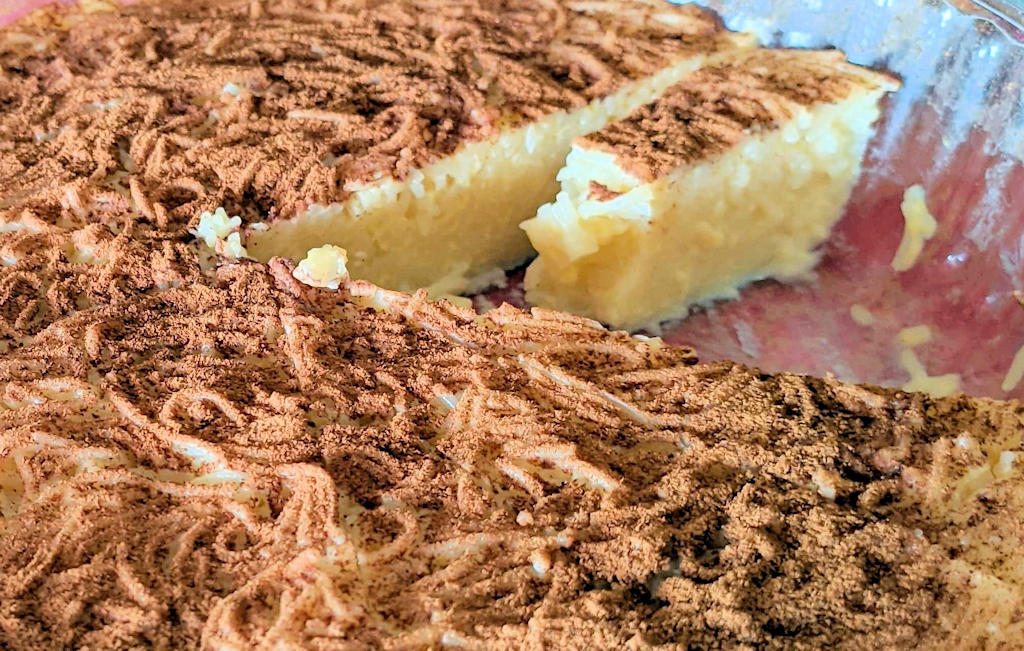The history and origin of Aletria Doce are somewhat shrouded in mystery, yet it is believed to have been influenced by Arab cuisine that made its way to the Iberian Peninsula during the Moorish occupation. The main ingredient, vermicelli pasta, is thought to have originated in the Middle East and was introduced to Europe by the Arabs. The term "aletria" itself finds its etymology in the Arabic word "al-itriya", which translates to "noodle".
The popularity of Aletria Doce in Portugal soared during the 15th and 16th centuries, a time when the country was actively engaged in exploration and trade with Asia, Africa, and America. Portuguese sailors and merchants returned from their voyages laden with exotic spices, including cinnamon, cloves, and nutmeg, which found their way into this delightful dessert, lending it an exquisite flavor profile. Additionally, the influence of convents and monasteries is evident in the dish, as nuns and monks utilized copious amounts of eggs and sugar to create decadent and sweet treats.
Crafting Aletria Doce requires a handful of simple yet essential ingredients that are readily available. Vermicelli pasta, also known as angel hair or capellini, forms the foundation of this delectable dessert. Other key components include milk, sugar, eggs, butter, lemon peel, cinnamon stick, and ground cinnamon. Variations of the recipe may include a fresh Portuguese cheese like Queijo Fresco de Cabra Transmontano, vanilla extract, orange peel, or almond extract to add a personal touch.
The preparation of Aletria Doce is relatively straightforward, allowing you to quickly bring this delightful dessert to life. The vermicelli pasta is cooked in boiling water with a pinch of salt for a few minutes before being drained and set aside. Meanwhile, a pot comes alive with heated milk, sugar, butter, lemon peel, and a cinnamon stick, simmering until it reaches a gentle boil. The cooked pasta joins this aromatic milk mixture and continues to simmer until it absorbs most of the liquid, infusing itself with the enticing flavors.
Next comes the harmony of eggs and milk. Egg yolks are beaten and strained before being tempered with a portion of the hot milk, ensuring a smooth and silky incorporation. The tempered egg mixture is then introduced to the pot, expertly stirred until it thickens, enveloping the pasta in a luscious, creamy embrace. The final touches involve removing the lemon peel and cinnamon stick, transferring the dessert to a serving dish or individual bowls, and allowing it to cool and set. Just before indulgence, a sprinkle of ground cinnamon crowns this masterpiece.
Lisbon.vip Recommends
Aletria Doce is not just a dessert; it encapsulates the essence of Portuguese cuisine, showcasing the simplicity and richness that defines it. With every spoonful, it evokes a sense of nostalgia, transporting you to moments of cherished family gatherings and festive celebrations. It is a treat that transcends generations, offering comfort and joy to both young and old alike. For tourists visiting Lisbon, Aletria Doce beckons as an opportunity to explore the authentic flavors and traditions of Portugal, an invitation to indulge in a dessert that embraces simplicity, evokes memories, and celebrates the richness of Portuguese culinary heritage. So, immerse yourself in the velvety sweetness of Aletria Doce and discover the true essence of Portuguese gastronomy.



